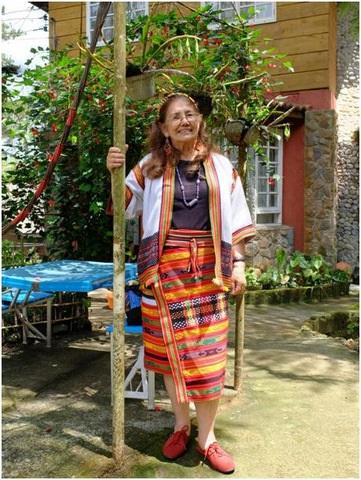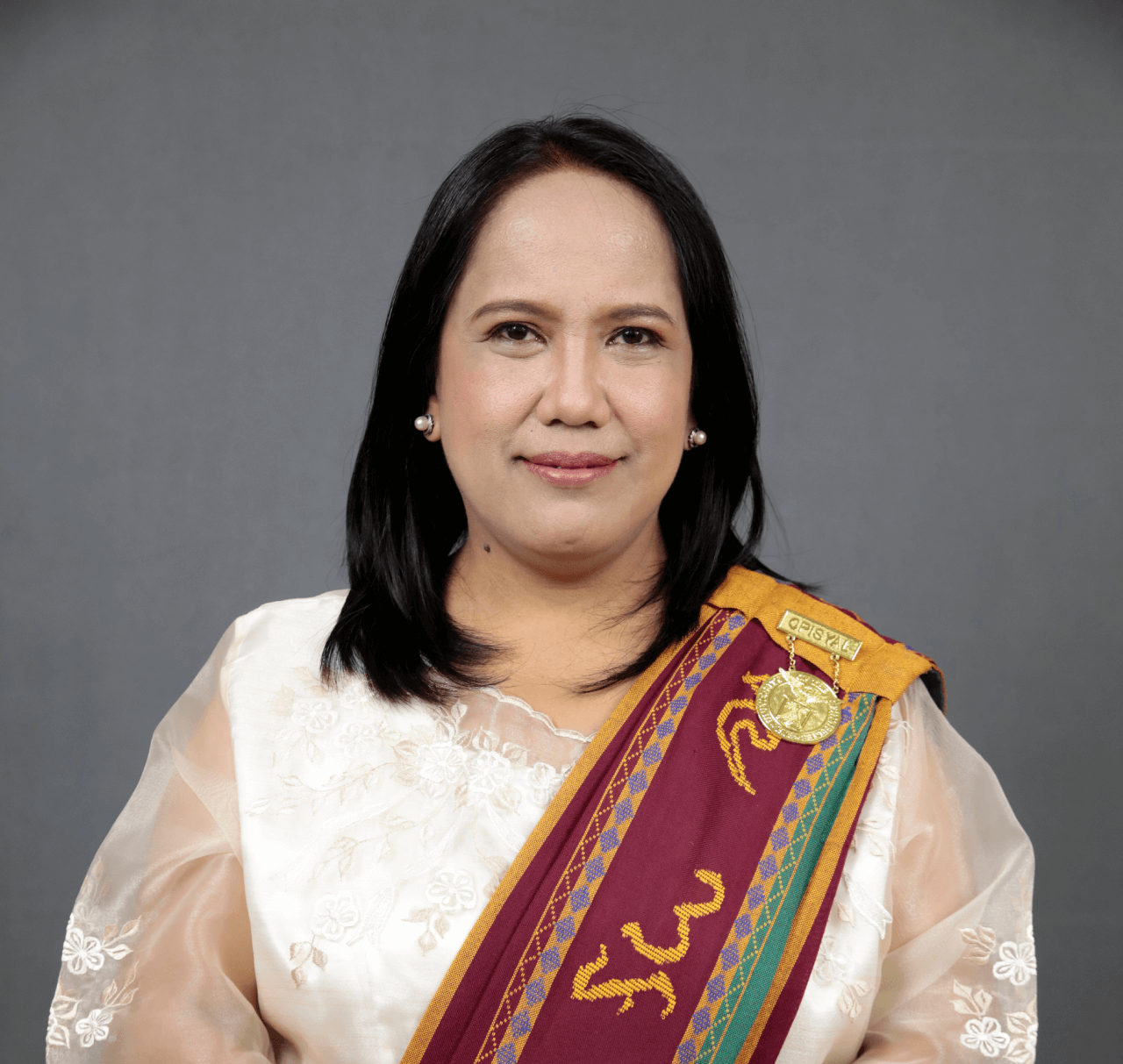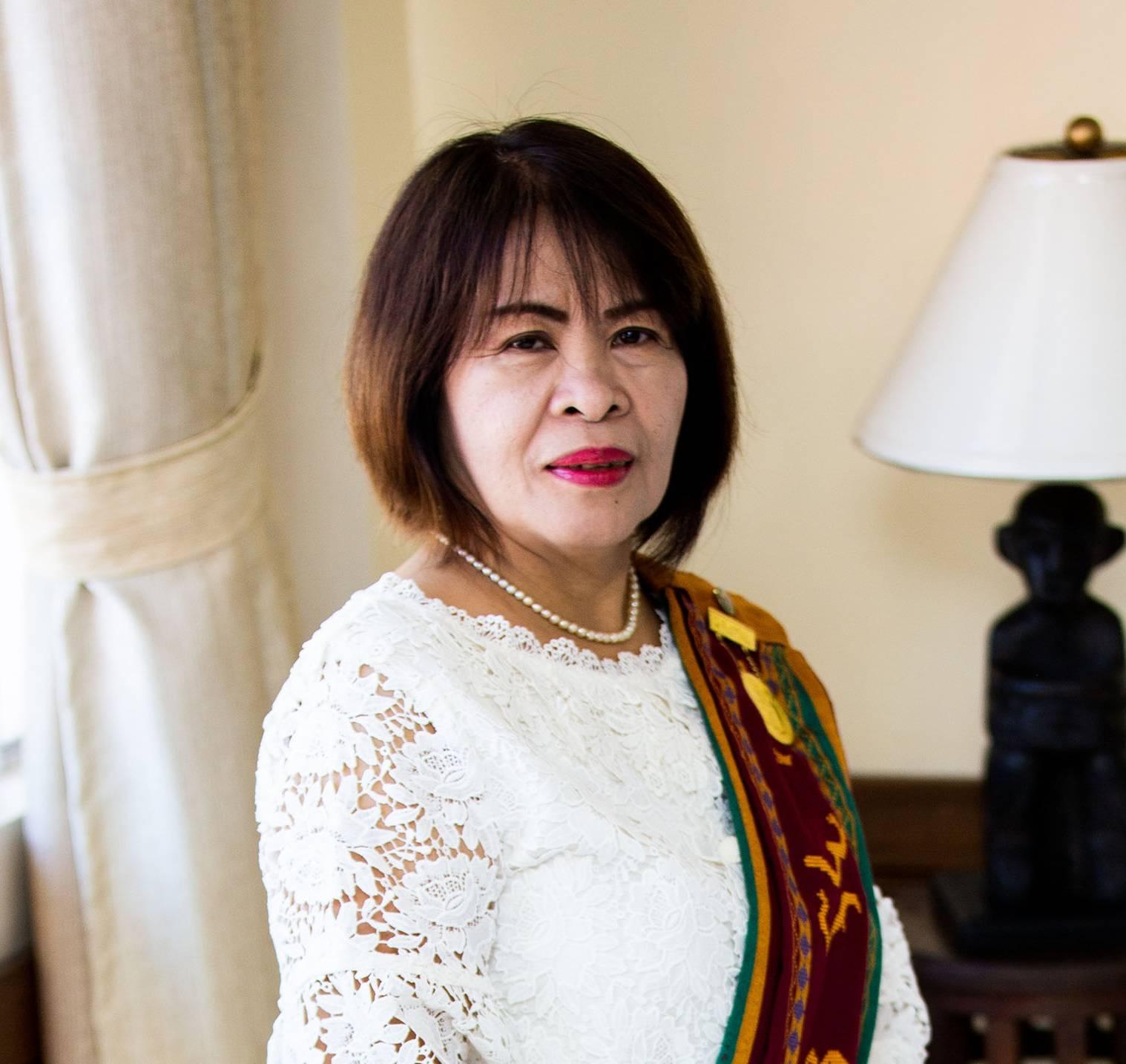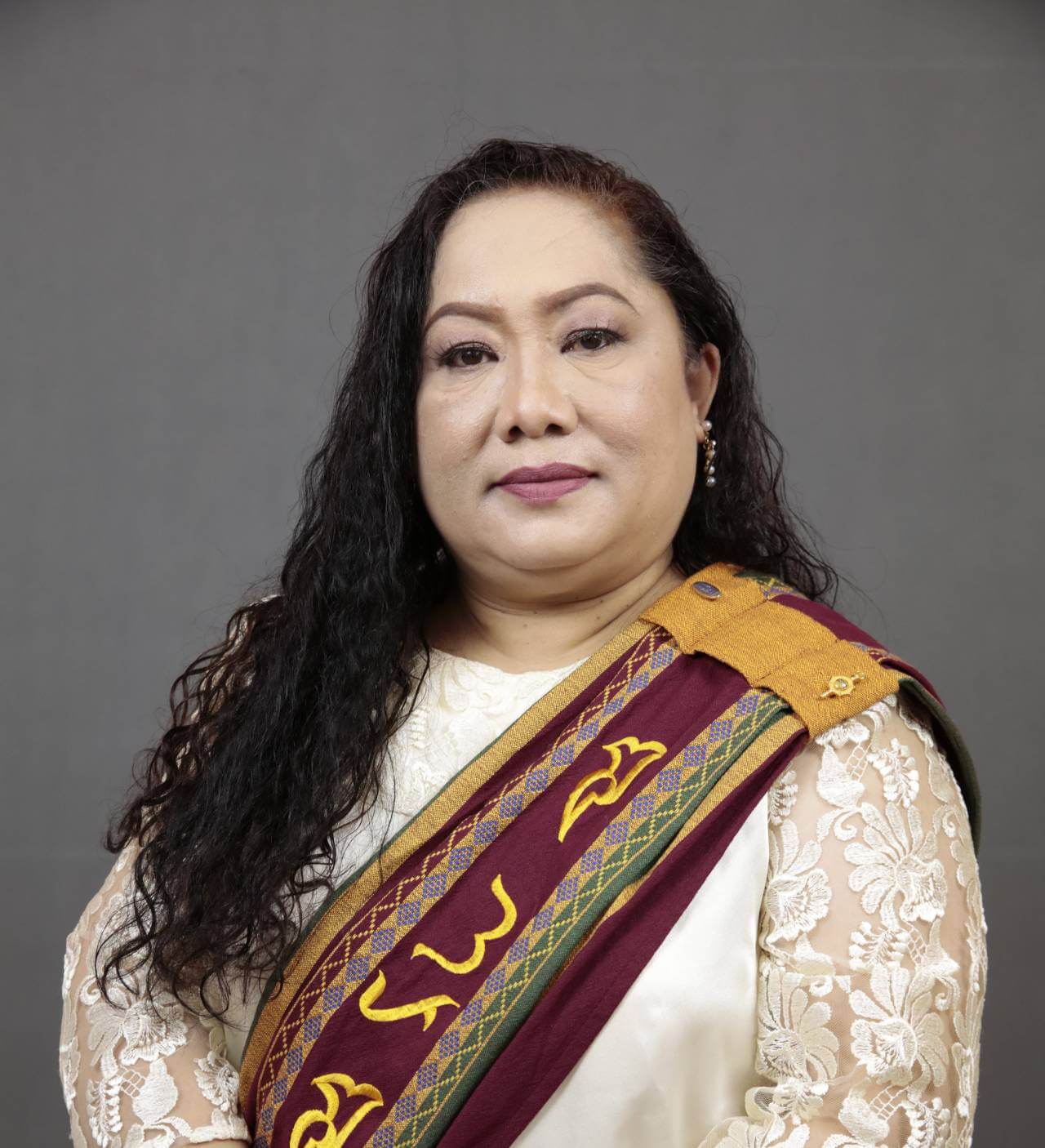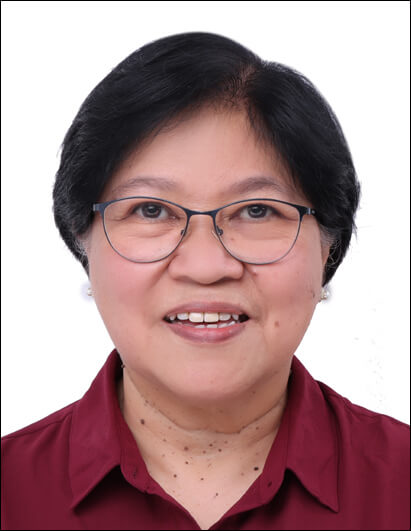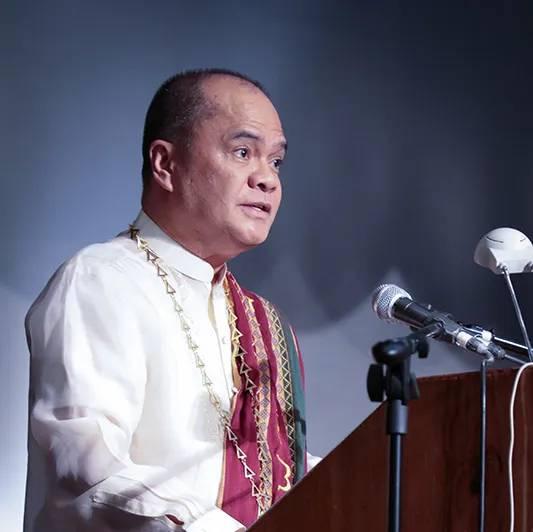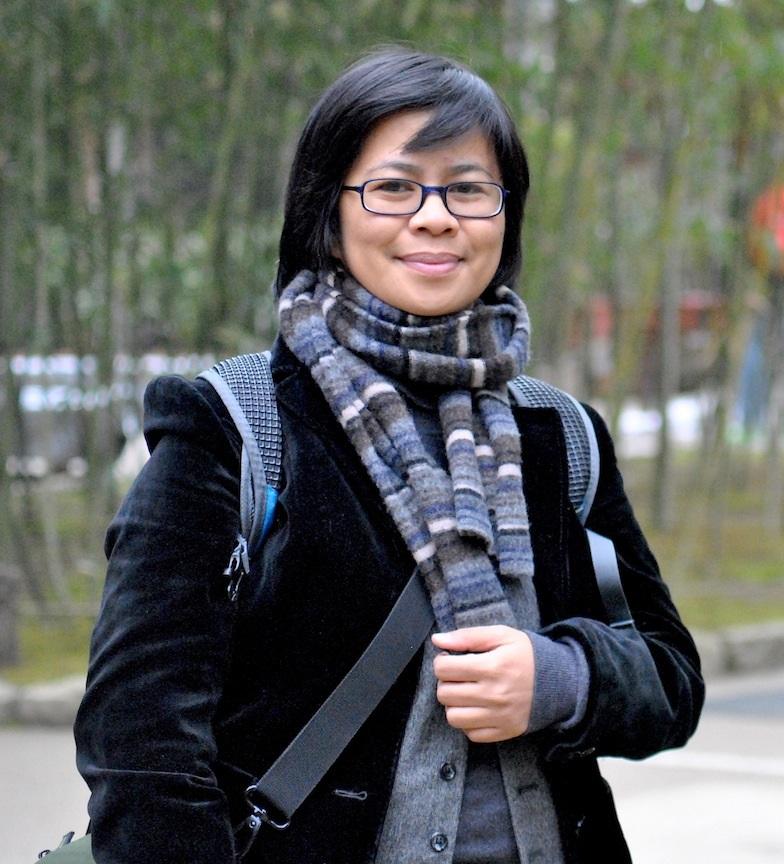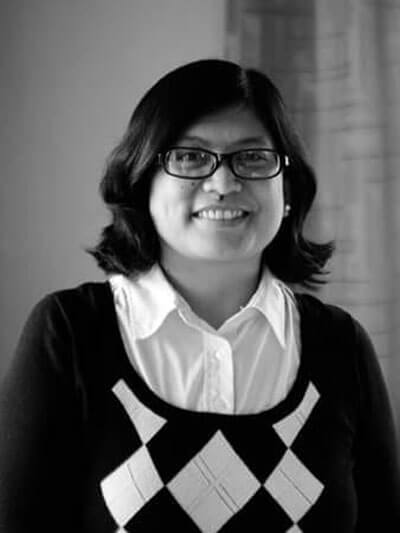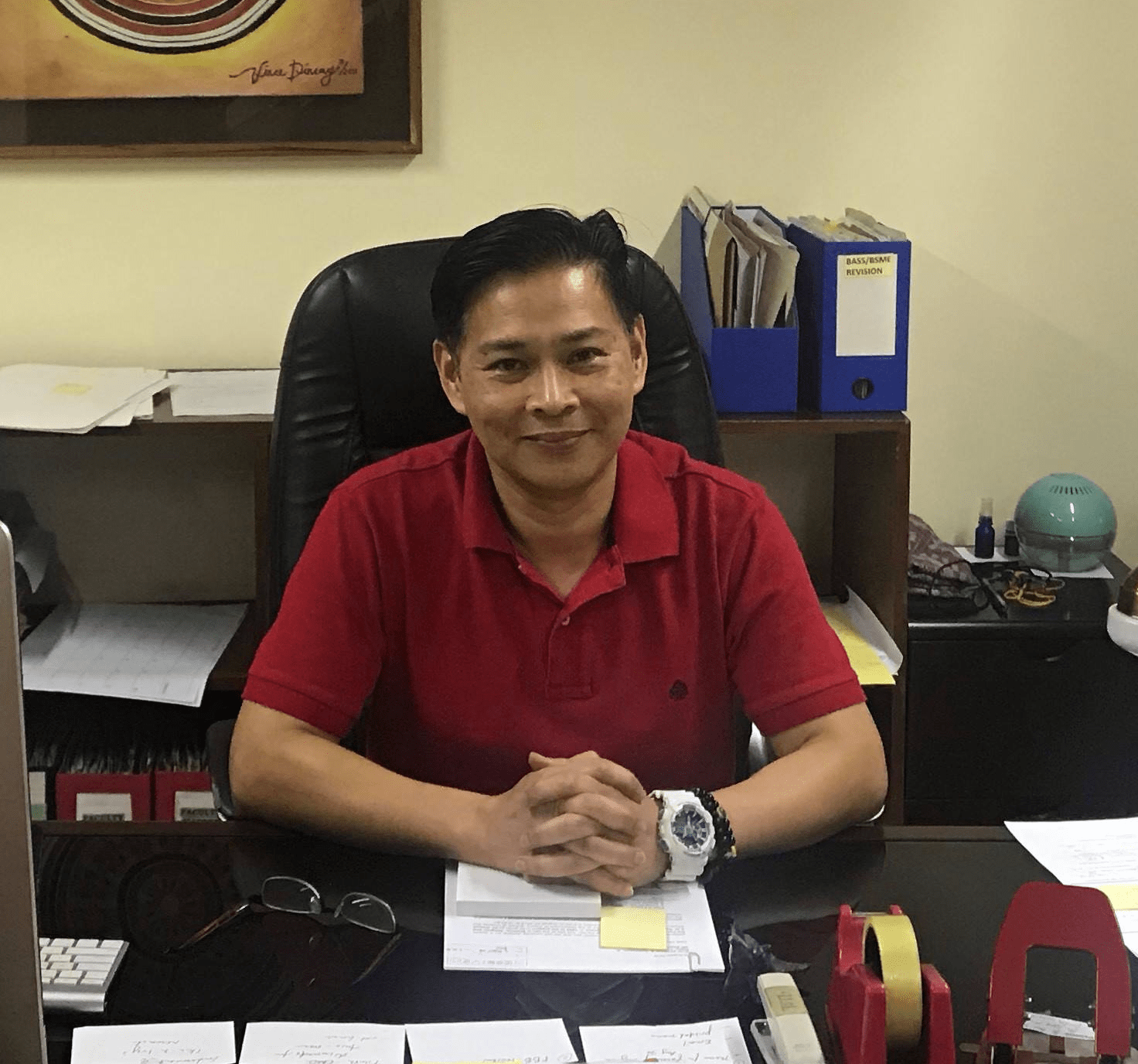Master of Arts in Social and Development Studies
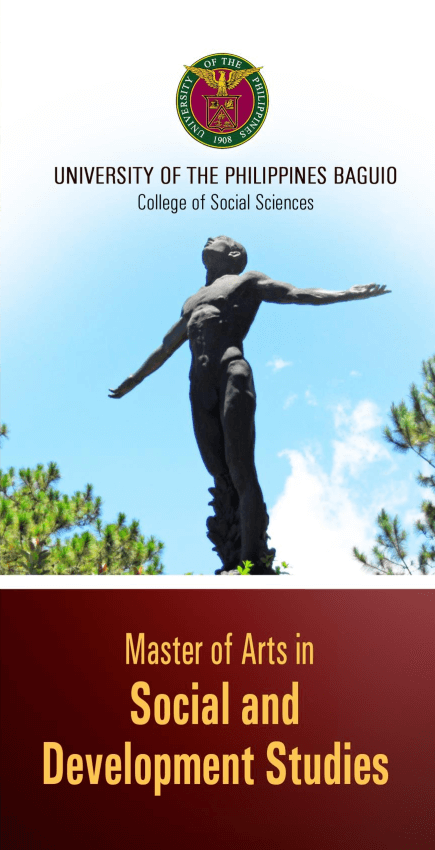
Program Description
The Master of Arts in Social and Development Studies (MASDS) is a graduate degree program that utilizes approaches from various social science disciplines to analyze the problems and issues of development. Development is a complex process that brings about change not only in the economy, but also in the politics, culture, and ecology of a society. This has found strong affirmation from the varied experiences of peoples in different countries across regions of the world. The program of study follows the lead of scholars of development studies who harness social science theory together with empirical and policy analysis to provide a better understanding of the process of development.
The MASDS is suited to BA/BS degree holders with sufficient background in the social sciences (anthropology, psychology, history, philosophy, economics, political science) and intend to join government and non-governmental institutions engaged in the planning and design of social and economic development at local, national, or international levels.
Program Expected Learning Outcomes
- Explain the processes and dimensions of development, its issues and problems, using approaches from social science and philosophy;
- Conduct independent research on topics that relate to development and other social issues;
- Apply social scientific knowledge to design appropriate development proposals or interventions;
- Engage in ethical social science and development practice; and
- Demonstrate lifelong learning in their personal and professional lives.
Program Rationale
- In Northern Luzon, there is a limited number of graduate programs in social sciences.
- Regional offices, agencies, schools, and communities need graduates of social sciences degrees to implement social and development programs, provide consultancy, and train personnel.
- Faculty and staff in the region’s higher educational institutions (HEIs) need opportunities for professional advancement, including the possibility to obtain an advanced social sciences degree from a Commission on Higher Education (CHED) – approved Delivering Higher Educational Institution (DHEI) Program for Graduate Scholarships like the MASDS.
- Academically-oriented college graduates and development practitioners in the region who seek a graduate degree in the social sciences will benefit from a program that advances the holistic and interdisciplinary analysis of social and development issues.
- Technical knowledge must be guided by an understanding of the cultural and social context of development. The program stresses the paramount significance of the systematic study of sociocultural structures as opposed to the purely technical interpretation of development.
- The response to the problems of particular communities in Northern Luzon requires a systematic social science approach to development issues rather than the approach of a narrow disciplinal specialization.
ADMISSION REQUIREMENTS
- The applicant should possess an undergraduate degree with at least 12 units of social science courses. The undergraduate cumulative average grade must be at least 2.5 or 80%.
If necessary, the program may require the student to enroll in additional remedial undergraduate social science subjects. - The applicant should possess integrity of intellect. This is determined through:
- An examination of undergraduate credentials and a two to three page essay describing the applicant’s academic background, current employment (if any), and reasons for applying to the program;
- A recommendation of three (3) former professors and/or supervisors;
- An interview with the applicant by the MASDS Committee. (Applicants must pass the interview. Qualified applicants will be notified of the date of interview one week after the deadline for submission of all application requirements); and
- A scheduled on-the-spot diagnostic essay on a topic provided by the MASDS Committee.
- Proof of English proficiency is required for admission to graduate studies of students whose native language is not English, except those who have graduated from institutions where the medium of instruction is English.
A score of at least 500 in the Test of English as a Foreign Language (TOEFL), or in exceptional cases, an equivalent certification from a duly authorized unit of the University should be presented. - No undergraduate units may be credited to graduate work.
- When remedial courses are recommended by the MASDS Committee, the applicant should pass them with at least a grade of 2.75. Remedial courses may be taken simultaneously with the student’s first semester courses.
- Applicants who are taking remedial courses are not considered to be officially admitted to the program. They can be considered as such only until after their performance for their first semester in the program has been assessed.
- To address deficiencies in the social science background of otherwise eligible applicants, enrolment in a bridging course during the mid-year term may also be proposed by the MASDS committee. In such an instance, the prospective applicant of the MASDS Program must complete and pass the mid-year bridging course before he/she can enroll in MASDS courses.
- A copy of the certificate of admission should be submitted to the MASDS Coordinator.
Documents to be Submitted for Application
- Duly accomplished Application for Admission to graduate studies at UP Baguio
- Three (3) Reference Report Forms from the applicant’s immediate supervisor (one) and former teachers (two)
- Official Transcript of all previous academic work (original and a photocopy)
- A 2-3 page essay describing the applicant’s academic background, current employment (if any), and reasons for applying to the program
- A 2-3 page concept paper containing the applicant’s envisioned research project at the end of his/her MASDS coursework
- For working students, an official permit from their employer/supervisor indicating the maximum number of units they are allowed to enroll
- Recent 2″ x 2″ photo (3 copies)
- Payment of application fee of PhP 250.00
All application documents must reach the Office of the College Secretary on or before the first Tuesday in July for first semester applicants, and the first Tuesday in December for second semester applicants. Applicants deemed eligible will be notified a week after the deadline of the submission of requirements.
Interviews and an on-the-spot essay examination will be scheduled in mid-July for the first semester applicants, and in mid-December for second semester applicants. Results will be announced a week before the first day of general registration every semester.
The MASDS Committee, composed of the MASDS Coordinator, and three (3) members voted at large from the pool of the CSS graduate faculty, will be tasked with screening the applicants, in addition to its general function of formulating and overseeing the implementation of MASDS rules and policies.
PROGRAM STRUCTURE
To obtain the degree, the student completes 36 units (including 6 units of master’s thesis or 3 units of seminar paper) and passes a comprehensive examination. The degree allows for a thesis or a non-thesis option.
Core Courses (15u for Thesis and Non-Thesis Options)
Qualified Electives
Thesis Option (9u)
Non-Thesis Option (12u)
Electives (6u may be taken from any graduate course, in consultation with adviser)
SDS 300 (6u, Thesis Option)
SDS 279 (3u, Non-Thesis Option
CORE COURSES (15u)
SDS 201 (3u). Development Theory and Practice. A survey of theories of socio-cultural change and their relation to development policy, planning, and implementation.
SDS 202 (3u). The Political Economy of Developing Counties. The study of how market forces and political processes and structures influence each other and together guide and shape the behavior of individuals towards the satisfaction of individual and collective wants in the context of developing countries.
SDS 271 (3u). Ethical Issues in Development. Theories and principles, thoughts and reflections about ethics and morality and how they influence and are influenced by the development process.
SDS 290 (3u). Social Science Concepts. Fundamental concepts in the social sciences, i.e., concepts referring to the recurrent and significant aspects of social reality, indispensable to the practice of each and every discipline in the social sciences, and present in the main social science theories that have given shape to the social sciences.
SDS 299 (3u). Research in the Social Sciences. Problem formulation and strategies in social research.
REQUIRED COURSES (6u)
SDS 279 (3u). Research Seminar in Development.
- Required for the Non-Thesis Option
- Pre-requisites: SDS 299 and Comprehensive Examination
SDS 300 (6u). Thesis.
- Required for the Thesis Option
- Pre-requisites: SDS 299 and Comprehensive Examination
QUALIFIED ELECTIVES
Thesis Option: 9u, Non-Thesis Option: 12u
SDS 230 (3u). Historical Perspectives. The historical context for and alternative interpretations of development.
SDS 265 (3u). Seminar in Community-Environmental Relations. Analysis of the relationship between communities and their environments.
SDS 278 (3u). Practicum in Development Work.
SDS 292 (3u). History and Philosophy of the Social Sciences. The emergence of meta-theories of social science in their social context through time and as related to the social science disciplines, their various theories, domains and methodologies.
SDS 298 (3u, but may be taken for a maximum of 9 u). Special Topics in Development. Examples of themes already/previously offered: Community Psychology; Women and Development; Gender and Household Economics; Dams and Development; Governance Issues in Development
SDS 299.1 (3u). Qualitative Research Methods. Basic concepts, principles, techniques, and issues in the collection and analysis of qualitative data.
- Pre-requisite: SDS 299
SDS 299.2 (3u). Quantitative Research Methods. Basic concepts, principles, techniques, and issues in the collection and analysis of quantitative data.
- Pre-requisite: SDS 299
ELECTIVES
6 units may be taken from any graduate course, in consultation with the adviser.
CURRICULUM
A student in the program may pursue a regular load of 9-12 units per semester or a part-time load of 6 units per semester, and a thesis for 6 units for a total of 36 units.
FULL-TIME
| First Year | |||
| First Semester | No. of Units | Second Semester | No. of Units |
| SDS 202 | 3 | SDS 299 | 3 |
| SDS 290 | 3 | Qualified Elective 2 | 3 |
| Qualified Elective 1 | 3 | Qualified Elective 2 | 3 |
| Total no. of units | 12 | Total no. of units | 12 |
| Second Year, First Semester | |||
| Thesis Option | No. of units | Non-Thesis Option | No. of Units |
| Elective 1 | 3 | Qualified Elective 4 | 3 |
| Elective 2 | 3 | Elective 1 | 3 |
| SDS 300 | 6 | Elective 2 | 3 |
| SDS 279 | 3 | ||
| Total no. of units | 12 | Total no. of units | 12 |
| *Student should have completed all course requirements before enrolling in History 300. Proof of language proficiency (when necessary) should be submitted prior to enrollment in thesis. | |||
PART-TIME
| First Year | |||
| First Semester | No. of Units | Second Semester | No. of Units |
| SDS 201 | 3 | SDS 271 | 3 |
| SDS 290 | 3 | SDS 299 | 3 |
| Total no. of units | 6 | Total no. of units | 6 |
| Second Year | |||
| First Semester | No. of Units | Second Semester | No. of Units |
| SDS 202 | 3 | Qualified Elective 2 | 3 |
| Qualified Elective 1 | 3 | Qualified Elective 3 | 3 |
| Total no. of units | 6 | Total no. of units | 6 |
| Third Year (Thesis Option) | |||
| 1st Semester | No. of Units | 2nd Semester | No. of Units |
| Elective 1 | 3 | SDS 300 | 6 |
| Total no. of units | 3 | ||
FACULTY MEMBERS
June Chayapan Prill-Brett
Position: Professor Emeritus
Categories: DASP
June Chayapan Prill-Brett, Ph.D: Department of Anthropology, Sociology, and Psychology
Professor Emeritus of Anthropology
Department of Anthropology, Sociology and Psychology
College of Social Sciences
Academic Background
Ph.D., in Anthropology, University of the Philippines, Diliman, Quezon City, 1987
M.A., in Anthropology, University of the Philippines, Diliman, Quezon City, 1975
B.A., in Anthropology, University of the Philippines, Diliman, Quezon City, 1971
Research Interests
Indigenous culture, Cordillera, ethnohistory
Publications
Prill-Brett, June. Tradition and Transformation: Studies on Cordillera Indigenous Culture. Baguio City: Cordillera Studies Center, University of the Philippines Baguio, 2015.
Prill-Brett, June. A Comparative Study of Agricultural Commercialization in Selected Highland Communities of the Cordillera-Ilocos Region. CSC Working Papers 24. Baguio City: Cordillera Studies Center, University of the Philippines Baguio, 1994.
Prill-Brett, June. Common Property Regimes among the Bontok of the Northern Philippine Highlands and State Policies. CSC Working Papers 21. Baguio City: Cordillera Studies Center, University of the Philippines Baguio, 1993.
Prill-Brett, June. Ibaloy Customary Law on Land Resources. CSC Working Papers 19. Baguio City: Cordillera Studies Center, University of the Philippines Baguio, 1992.
Prill-Brett, June. Baguio: A Multi-Ethnic City and the Development of the Ibaloy as an Ethnic Minority. CSC Working Papers 15. Baguio City: Cordillera Studies Center, University of the Philippines Baguio, 1990.
Prill-Brett, June. Indigenous Experience of Autonomy in the Cordillera. CSC Working Papers 10. Baguio City: Cordillera Studies Center, University of the Philippines Baguio, 1989.
Prill-Brett, June. The Bontok Chuno Feast in the Context of Modernization. CSC Working Papers 12. Baguio City: Cordillera Studies Center, University of the Philippines Baguio, 1989.
Prill-Brett, June. A Survey of Cordillera Indigenous Political Institutions. Baguio City: Cordillera Studies Center, University of the Philippines Baguio, 1987.
Prill-Brett, June. Coping Strategies in the Bontok Highland Agroecosystem: The Role of Ritual. Baguio City: Cordillera Studies Center, University of the Philippines Baguio,1987.
Prill-Brett, June. Pechen: The Bontok Peace Pact Institution. Baguio City: Cordillera Studies Center, University of the Philippines Baguio,1987.
June Chayapan Prill-Brett
Professor Emeritus
Professor Emeritus of Anthropology Department of Anthropology, Sociology and Psychology...
Leah E. Abayao
Professor of History
Department of History and Philosophy
College of Social Sciences
Academic Background
Senior Fellow, The Frick Collection-New York City, USA
Research Fellow, Linden Museum – Stuttgart, Germany
Research Fellow, University of Michigan – Ann Arbor, USA
Visiting Scholar, Katholieke Universitet Leuven, Belgium
Ph.D. in History, University of the Philippines Diliman
M.A. Social Development Studies, University of the Philippines
B.A. Social Sciences Majors in Anthropology and History, University of the Philippines
Research Interests
Indigenous Knowledge, Community Heritage, Philippines Cordilleras, Indigenous Peoples
Extension Work
Go Global SDGs in Action Student Challenge (with York University), 2022 – present
International Indigenous Student Exchange Program (with York University, 2021 – present
CHED Kabadang Research and Publication Capacity Building, 2021 – present
External Evaluator, National Commission on Culture and the Arts (NCCA) Mapping Program, 2020 – present
Community Archives (with the National Archives of the Philippines), 2014 – present
Publications
ORCID 0000-0001-5505-336X
Scopus Author ID: 11940079500 & 57402054500
Abayao, Leah, Podruchny, Carolyn, Fong, Jimmy. Indigeneity and the Production of knowledges on Indigenous Peoples in the Philippines (forthcoming)
Ronan Q. Baculi, Giovanni M. Malapit & Leah E. Abayao. 2022. Atmospheric pressure plasma deposition of silver nanoparticles on bark fabric for bacterial growth inhibition, The Journal of The Textile Institute, DOI: 10.1080/00405000.2021.2024378
Abayao, Leah, Akanisi Sobusobu Tarabe, Vuthy Lic, Prasert Trakansuphakon. 2020. Forest Policies and Indigenous Peoples’ Traditional Knowledge and Practices on Sustainable Forest Management: Fiji, Cambodia and Thailand. Tebtebba Foundation.
Abayao, Leah. 2019. Indigenous Studies as a platform for Internationalization in Higher Education. Proceedings of the Indigenous Peoples Education conference. University of the Philippines Baguio.
Abayao, Leah. 2018. Cordillera Objects in the Philippines Collection (of the Linden Museum). In Co-creation Labs: Illuminating Guests, Artists and New Voices in European Museums of World Culture. Sanstein Verlag and Linden- Museum Stuttgart.
Abayao, Leah. 2014. Spirituality and the (re) constructions of indigenous traditions. InUnsettling Discourses: The Theory and Practice of Indigenous Studies. Cordillera Studies Center, UP Baguio. 2014; Pages 127-134.
Abayao, Leah.2005. Mainstreaming Intercultural Education: the case of UP Baguio’s Educational Assistance Program, Higher Education Policy 18, 409–411. Palgrave.
Abayao, Leah. 2006. Articulating Indigenous Peoples’ Culture in Education. In Indigenous Education and Empowerment: International Perspectives. Eds. Duane Champagne and Ismael Abu-Saad. Alta-mira Press, Oxford UK.
Abayao, Leah. 2001. Indigenous knowledge on Forest management and Conservation of Medicinal Plants among the Ifugaos of Northern Luzon. KASARINLAN Journal, University of the Philippines Press.
Abayao, Leah. 2000. Ifugao Ethnomedicine in History. The Journal of History. Volume 46, No. 1-4.
Abayao, Leah, Sombolinggi, Rukka. 2010. Indigenous Peoples and the dynamics of development programs: The case of the East Kalimantan Communities Empowerment Program (EKLCEP). In Assessing the first decade of the World’s Indigenous People, 1995-2004. Vol. 1: The Southeast Asia Experience.
Abayao, Leah. 2009. Mayoyao Ethnohistory, 1850 – 1960. The Journal of History. “Philippine Ethnohistories: The Luzon Cordillera and Beyond”. Volume LV, January – December.
Leah E. Abayao
Professor, Dean
Professor of History Department of History and Philosophy College of...
Corazon L. Abansi
Professor of Management
Institute of Management
College of Social Sciences
Academic Background
Ph.D Natural Resource and Environmental Economics, University of the Philippines, 1997
MA Economics University of the Philippines, 1994
MS Agricultural Economics, University of the Philippines, 1989
BS Economics University of the Philippines, 1980
Research Interests
Protection of the environment and the improvement of the quality of education.
Publications
Hall, R. A., Abansi, C. L., & Lizada, J. C. (2018). Laws, institutional arrangements, and policy instruments. In Water Policy in the Philippines (pp. 41-64). Springer, Cham.
Abansi, C. L., Hall, R. A., & Siason, I.M. (2018). Water demand management and improving access to water. In Water Policy in the Philippines (pp. 233-259).
Springer, Cham. Dayo, M. H., Rola, A., Abansi, C., Lizada, J., Hall, R. A., & Siason, I. (2018). When Sacred Water Becomes an Economic Good: Tensions and Governance
Challenges in Mount Banahaw, Philippines. Journal of Environmental Science and Management, 21(2).
Corazon L. Abansi
Chancellor, Professor
Professor of Management Institute of Management College of Social Sciences...
Alejandro N. Ciencia
Professor of Political Science
Department of Economics and Political Science
College of Social Science
Academic Background
Ph.D., Political Science, University of the Philippines Diliman, 2010
Dissertation: “The Philippine Supreme Court and the Mining Act Ruling Reversal”
M.A., Political Science, University of the Philippines Diliman, 1996
Thesis: “Notions of Justice in the Cordillera”
B.A., Social Science (Double Major: Philosophy and Political Science), University of the Philippines Baguio, 1987.
Visiting Fellow:
Visiting Scholar, November 2019-February 2020, University of Michigan, Ann Arbor, USA (Fulbright Grant)
Visiting Scholar at Vanderbilt University, February-May 2008, Nashville, Tennessee, USA (CHED Sandwich Grant)
Research Interests
Justice, Political Philosophy, Judicial Behavior, Urban Resilience, Water Security, Climate Change, Indigenous Peoples’ Rights
Academic Organization
Philippine Political Science Association (PPSA)
Extension Services
Facilitated Seminars/Workshops on:
Disseminating Research Outputs
Sustaining Research Projects
Research for Teachers
Scholarly and Academic Writing
Writing for Publication
Publications
Ciencia, A.N.; Mendoza, L.C.; Cruz, G.A.; Penalba, M.A.; Calde, N.L.; M.R. and Cabalfin, M.R. 2017. “Water Security and Urban Resilience: The Case of Baguio City, Philippines,” pp.146-164. Responding to Climate Change in Asian Cities: Governance for a more Resilient Urban Future, edited by Diane Archer, Sarah Colenbrander, David Dodman. Routledge.
Cruz, G., Mendoza, L., and Ciencia, A. 2016. “The Civil Registration of Indigenous Peoples in the Cordillera Region: Issues in Implementing NSO Administrative Order No. 3 of 2004.” Public Policy Journal, 14, pp. 33-82.
Ciencia, A.N. 2016. “UP Baguio’s Water Security Project: Lessons Learned,” pp. 155-167. Social Science Teaching, Research and Practice: Consolidating Lessons and Charting Directions, Volume 2, edited by L.C. Mendoza. Baguio City, Philippines: College of Social Sciences, UP Baguio and the Cordillera Studies Center.
Flor, Alexander G.; Ciencia, Alejandro N.; and Sta. Maria-Abalos, Cecilia Fe L, eds. 2016. Resilience and Sustainability: Fourteen Narratives. Baguio City, Philippines: Cordillera Studies Center.
Mendoza, L.C.; Ciencia, A.N.; Cruz, G.; Penalba, M.; Calde, N.; and Cabalfin, M. 2016. “Engaging Communities in Addressing Water Security, Sanitation, and Urban Resilience Challenges in
Baguio City,” A report submitted to the ICLEI-Southeast Asia Secretariat.
Ciencia, A.N.; Mendoza, L.C.; Cruz, G.; Calde, N.; Cabalfin, M.; and Penalba, M. 2015. “Towards Establishing Water Security and Urban Resilience in the City of Baguio,” Asian Cities Climate Resilience Working Paper Series, 27-2015.
Ciencia, A.N. 2012. “From Judicialization to Politicization of the Judiciary: The Philippine Case,” pp. 117-138. The Judicialization of Politics in Asia, edited by Bjoern Dressel. London, UK: Routledge.
Ciencia, A. N. 2006. “The Philippine Supreme Court and the Mining Act Reversal,” Working Paper published by the East-West Center as part of the International Graduate Student Conference
Working Paper series.
Ciencia, A.N. 2001. “Notions of Justice in the Cordillera,” pp. 103-128. Towards Understanding Peoples of the Cordillera: A Review of Research on History, Governance, Resources,
Institutions and Living Traditions, Vol. 1, edited by V. Rico-Costina and M. Difontorum. Philippines: Cordillera Studies Center.
Casambre, A.L., Ciencia, A.N., Colongon, A.A., Rood, S., and Simeon-Bulosan, L. 1996. “Ethnic Variations in Cordillera Citizen Attitudes Towards Dispute Settlement.” Monitoring the State of the Judiciary and the Legal Profession, edited by M. Mangahas. Philippines: Social Weather Stations.
Alejandro N. Ciencia
Professor
Professor of Political Science Department of Economics and Political Science...
Santos Jose O. Dacanay III
Position: Professor
Categories: IM
Professor of Management
Institute of Management
College of Social Sciences
Academic Background
Ph.D. Business Administration University of the Philippines, 2007
Dip. Urban and Regional Planning, University of the Philippines, 2000
Masters in Business Administration, Saint Louis College, 1998
B.S., Business Administration, University of the Philippines, 1995
Publications
Santos, R. R., Dacanay Ill, S. J. 0., Hapitan, R. B., & Abueg, L. C. (2018). Essentials of Investments in the Philippine Capital Market. Southville Global Education Network, 3rd edition.
Santos Jose O. Dacanay III
Professor
Professor of Management Institute of Management College of Social Sciences...
Charita A. Delos Reyes
Position: Professor
Categories: DHPH
Professor of History
Department of History and Philosophy
College of Social Sciences
Academic Background
Exchange Visiting Scholar for Advanced Research (PAEF-Fulbright Commission), The University of Maryland at College Park, 2017-2018
Visiting Scholar, The University of Michigan at Ann Arbor, Center for Southeast Asian Studies, 2017
Ph.D., History, University of the Philippines, 2014
Exchange Visiting Scholar (PAEF-Fulbright Commission), The George Washington University, Sigur Center for Asian Studies, Elliott School of International Affairs, Washington D.C., 2011-2012
M.A., History, University of the Philippines, 2004
M.A., Educational Administration and Supervision, Saint Louis University, 2001, cum laude
B.S., Political Science, Saint Louis University, 1989, magna cum laude
Publications
Delos Reyes, Charita Arcangel. “Educating Mokimok and Chainus: The Ibaloys at the Bua School, 1901-1940.” In CHIVA: A Reader on Ibaloy History and Culture, edited by Jimmy B. Fong. UP Baguio: Cordillera Studies Center, 2017, pp. 35-60.
“Decompartmentalizing History and the Problem of Historical Inquiry.” Social Science Teaching, Research and Practice: Consolidating Lessons and Charting Directions 2. Edited by Lorelei Crisologo. Mendoza. Baguio City: College of Social Sciences and the Cordillera Studies Center, University of the Philippines Baguio, 2016, pp. 85-99.
“Mula sanitarium tungong paaralan: Kasaysayan ng Pagbabagong-anyo ng Kaligiran ng Lungsod ng Baguio.” Sa Shuntug: Mga Kabundukan sa Kasaysayan at Kalinangang Pilipino. Patnugot, Lars Raymund C. Ubaldo. Manila: NCCA at ADHIKA ng Pilipinas, Inc., 2015: 66-78.
“The Genesis of a University Town: The Case of Baguio City, 1946-1973.” Conference Proceedings of the International Symposium on Education and Psychology, ISEP 2014-Fall 2014, Meiji University, Surugadai Campus, Tokyo, Japan, November 12-14, 2014. Published by the Knowledge Association of Taiwan (KAT), Taipei, Taiwan. ISSN 2236-6275 (CD Version)
“Ang Information and Communications Technology (ICT) at ang Neokolonyal na Eduksayon sa Pilipinas (1945-Kasalukuyan).” In Kasarinlan: Philippine Journal of Third World Studies 17, no. 2 (2002): 139-166.
Charita A. Delos Reyes
Professor
Professor of History Department of History and Philosophy College of...
Maria Nela B. Florendo
Position: Professor
Categories: DHPH
Professor of History
Department of History and Philosophy
College of Social Sciences
Academic Background
Visiting Scholar, University of Memphis, 2016 – 2017
Visiting Scholar, University of Michigan, 2008
Ph.D., History University of the Philippines, 1992
M.A., University of the Philippines, 1984
B.S., University of the Philippines, 1979
Publications
“Integrating Indigenous People’s History in a General Philippine History Syllabus” Journal of History LXV (2019)
“Northern Luzon: Historical Interpretation of Regional Space” in Journal of History Vol. LXIV (2018):67-86.
“Space, Agency, and Narratives of Identity: The Indigenous Peoples of the Cordillera, Northern Luzon, Philippines” in Regional Journal of Southeast Asian Studies Vol. 1 (2016):30-65.
“Interethnic Relations in a Time of War: The Case of Baguio” in Journal of History Vol. LXII. “Challenges in the Writing of Local History Research in the Cordillera” in the Local History Network Journal, National Historical Commission of the Philippines, June 2015.
“If Church Ruins Could Speak: RE-thinking Reduccion and the Plaza Complex in Northern Cordillera.” Journal of History Vol. LXI 2015: 78-96.
Maria Nela B. Florendo
Professor
Professor of History Department of History and Philosophy College of...
Raymundo D. Rovillos
Position: Professor
Categories: DHPH
Professor of History
Department of History and Philosophy
College of Social Sciences
Academic Background
Ph.D., History, University of the Philippines, 2005
M.A., Social and Development Studies, University of the Philippines, 1996
B.A., Social Sciences (History and Political Science), University of the Philippines, 1986
Publications
“History of Small-scale Mining in Fidelisan, Sagada, Mountain Province.” A Chapter of Main Report: Small-scale Mining in Sagada, Mountain Province: A Case Study. Completed in March 2015.
Raymundo D. Rovillos
Professor
Professor of History Department of History and Philosophy College of...
Analyn V. Salvador-Amores
Position: Professor
Categories: DASP
Professor of Anthropology
Department of Anthropology, Sociology, and Psychology
College of Social Sciences
Academic Background
D.Phil. Social and Cultural Anthropology, University of Oxford, 2011
M.Phil., University of Oxford, 2008
M.A., University of the Philippines, 2002
B.A., University of the Philippines, 1995
Research Interests
Cordillera, indigenous peoples, tattoos, textiles
Publications
Analyn V. Salvador-Amores
Professor
Professor of Anthropology Department of Anthropology, Sociology, and Psychology College...
Rozel S. Balmores-Paulino
Associate Professor in Psychology
Department of Anthropology, Sociology, and Psychology
College of Social Sciences
Academic Background
Ph.D, Psychology (major in Social Psychology and minor in Developmental Psychology), University of the Philippines Diliman, 2016
MA, Psychology, University of the Philippines Diliman, 2013
MA, Social and Development Studies, University of the Philippines Baguio, 2002
BA, Social Science (Double Major in Psychology and Anthropology), 1997, cum laude
Research Interests
Women and Work, Adolescent Risk Behaviors, Psychology of Filipino Humor, Stigma, COVID-19, Urban Safety, Social Psychology, Group Dynamics, Sikolohiyang Pilipino and Indigenous Psychology, Developmental Psychology
Extension Service
Member/Reviewer, DOST-PCHRD Mental Health-Technical Working Group (MH-TWG)
Reviewer, 2022 Society for Personality and Social Psychology Student Outstanding Research Awards (ORA); 2020 Society for Personality and Social Psychology Student Outstanding Research Awards (ORA); 2018 Society for Personality and Social Psychology Student Outstanding Research Awards
Reviewer, 2020 Society for Personality and Social Psychology Undergraduate Student Poster Awards
Reviewer, 2018 Society for Personality and Social Psychology Summer Program for Undergraduate Research (SPUR)
Reviewer, 2017 American Psychological Association’s Doctoral Dissertation Research Award
Reviewer, Jurnal Biopsikososial: Jurnal Ilmiah Psikologi Fakultas Psikologi Universitas Mercubuana
Reviewer, Diliman Review (October 2021)
Reviewer, Mountain Journal of Science and Interdisciplinary Research (Benguet State University Research Journal) (October 2021)
Resource Person, CSS Lecture Series: Researching in the Social Sciences Digital Dialogues, Psychology of Humor (online via Zoom), Streamed live on April 26, 2021,
Resource Person, Center for Mental Health Proposal Writeshop, hosted by Regional Research, Development and Innovation Committee and Department of Science and Technology Cordillera Administrative Region, March 15, 2021 (online via Zoom)
Resource Speaker, Katatagan at Pagbangon sa Panahon ng Pandemya, CSC’s 40th Anniversary lecture, Teatro Amianan, UP Baguio, Streamed live on: June 25, 2020,
*a lecture on the impact of a pandemic and the diverse psychological reactions to the crisis; the practical ways of dealing with pandemic-related emotional distress; and managing the impact of COVID-19 through a resilience framework
Resource Person/Workshop Facilitator, on Experimental Research, Qualitative and Quantitative Research Methods in the Social Sciences and Philosophy, 2018 CSSP Extramural Training Seminar for Social Science Teachers, Crown Legacy Hotel and University of the Philippines Baguio, Baguio City April 28-30, 2018
Publications
Balmores-Paulino R.S. (2019) Laziness. In: Zeigler-Hill V., Shackelford T. (eds) Encyclopedia of Personality and Individual Differences. Springer, Cham.
Balmores-Paulino R.S. (2019) Homeostasis. In: Zeigler-Hill V., Shackelford T. (eds) Encyclopedia of Personality and Individual Differences. Springer, Cham.
Balmores-Paulino R.S. (2018) Prejudice. In: Zeigler-Hill V., Shackelford T. (eds) Encyclopedia of Personality and Individual Differences. Springer, Cham.
Balmores-Paulino R.S. (2018) Spontaneity. In: Zeigler-Hill V., Shackelford T. (eds) Encyclopedia of Personality and Individual Differences. Springer, Cham.
Balmores-Paulino R.S. (2018) Avoidance Coping Strategies. In: Zeigler-Hill V., Shackelford T. (eds) Encyclopedia of Personality and Individual Differences. Springer, Cham.
Balmores-Paulino, R. S. (2018) Humor. In: Ziegler-Hill V., Shackelford T. (eds). Encyclopedia of Personality and Individual Differences. Springer, Cham.
Balmores-Paulino, R. S. (2016) Culture as a Variable in Psychological Research. In: Crisologo-Mendoza L. Social Science Teaching, Research and Practice: Consolidating Lesson and Charting Directions (Conference Papers, Volume 1), pp. 17-34. Published by the College of Social Sciences and the Cordillera Studies Center, University of the Philippines Baguio.
Milallos, Ma. Theresa R. and Balmores, Rozel S. (2009) Exploring the Capabilities of Selected Muslim Women in Baguio City, Northern Philippines. The Cordillera Review: Journal of Philippine Culture and Society, Vol. 1, No. 2, pp. 87-117, Cordillera Studies Center, University of the Philippines Baguio.
Diaz, Maria Ana B., Balmores, Rozel S. and Gapasin, Mursha D. (2008) Filipino Youths in the Region: Demographic and Social Correlates of Suicide Ideation and Attempt Among the Youth in the Cordillera Administrative Region. Published by the Demographic Research and Development Foundation, Inc. University of the Philippines Population Institute (monograph).
Academic Organizations
Member, Society for Personality and Social Psychology
Member, Pambansang Samahan ng Sikolohiyang Pilipino
Rozel S. Balmores-Paulino
Associate Professor
Associate Professor in Psychology Department of Anthropology, Sociology, and Psychology...
Arellano A. Colongon Jr.
Position: Associate Professor
Categories: DEPS
Associate Professor in Political Science
Department of Economics and Political Science
College of Social Sciences
Academic Background
M.A., Political Science, University of the Philippines Diliman, 1994
B.A., Social Sciences (Double Major in Political Science and Philosophy), University of the Philippines Baguio, 1987
Publications
Mendoza, Lorelei C., Prill-Brett, June, Tapang, Bienvenido P., Cruz, Gladys A., Colongon, Arellano Jr. A., Diaz, Victoria Lourdes C., San Luis, Ma. Cecilia R., Follosco, Alicia G. “Harmonizing ancestral domain with local governance in the Cordillera of the northern Philippines” in Tyler, Stephen R., eds. Communities, Livelihoods and Natural Resources: Action Research and Policy Change in Asia, (2006), 231-252
Casambre, A.L., Ciencia, A.N., Colongon, A.A., Rood, S., and Simeon-Bulosan, L. 1996. “Ethnic Variations in Cordillera Citizen Attitudes Towards Dispute Settlement.” Monitoring the State of the Judiciary and the Legal Profession, edited by M. Mangahas. Philippines: Social Weather Stations.
Arellano A. Colongon Jr.
Associate Professor
Associate Professor in Political Science Department of Economics and Political...
Gladys A. Cruz
Position: Associate Professor
Categories: DEPS
Associate Professor in Economics
Department of Economics and Political Science
College of Social Sciences
Academic Background
M.A., Social and Development Studies, University of the Philippines, 1999
B.A., University of the Philippines, 1984
Publications
Mendoza, L.C.; Cruz, G.A.; Ciencia, A.N.; and Penalba, M.A. 2020. “Local Policy and Water Access in Baguio City, Philippines.” International Journal of Social Ecology and Sustainable
Development, Vol. 20, Issue 1 (January-March 2020), pp.1-13.
Cruz, G., Mendoza, L., and Ciencia, A. 2016. “The Civil Registration of Indigenous Peoples in the Cordillera Region: Issues in Implementing NSO Administrative Order No. 3 of 2004.” Public
Policy Journal, 14, pp. 33-82.
Mendoza, L.C.; Ciencia, A.N.; Cruz, G.; Penalba, M.; Calde, N.; and Cabalfin, M. 2016. “Engaging Communities in Addressing Water Security, Sanitation, and Urban Resilience Challenges in Baguio City,” A report submitted to the ICLEI-Southeast Asia Secretariat.
Mendoza, Lorelei C., Prill-Brett, June, Tapang, Bienvenido P., Cruz, Gladys A., Colongon, Arellano Jr. A., Diaz, Victoria Lourdes C., San Luis, Ma. Cecilia R., Follosco, Alicia G. “Harmonizing ancestral domain with local governance in the Cordillera of the northern Philippines” in Tyler, Stephen R., eds. Communities, Livelihoods and Natural Resources: Action Research and Policy Change in Asia, (2006), 231-252.
Gladys A. Cruz
Associate Professor
Associate Professor in Economics Department of Economics and Political Science...
Maria Ana B. Diaz
Assistant Professor in Psychology
Department of Anthropology, Sociology, and Psychology
College of Social Sciences
Academic Background
M.S., Psychology, Saint Louis University
B.S., Psychology, UP College Baguio
Research Interests
Developmental Psychology
Extension Service
Social Sciences Research and Extension Institute.
(Gave a lecture on Interviewing and Quasi-experimental method)
Publications
Canilao, NP and Diaz, MAB (2013). Sikolohiyang Pilipino: Fifty years of critical-emancipatory social sciences in the Philippines. Annual Review of Critical Psychology (Critical Psychology in a Changing World: Building Bridges and Expanding the Dialogue) 10, 765-783.
Violence against Indigenous Girls, Adolescents and Youth: The Philippine Experience . (2013). Prof. TS Ramos, Prof. MAB Diaz, AM Villalon, Jerry Bangcawayan (co-authors). A paper submitted to the Tebtebba Foundation.
Growing Old Alone: An Exploratory Study of Childless Elderly Men and Women in Baguio City (2011). Prof. MC San Luis , Prof. MAB Diaz and Ms AG Follosco, Cordillera Studies Center
Correlates of Suicide Ideation and Attempt among the Youth in the Cordillera Administrative Region (2008). Prof. MAB Diaz, Prof. R. Balmores-Paulino and Ms. MD Gapasin. Demographic Research and Development Foundation, Inc. ,UP Population Institute.
Trends in Content and Strategies of Sexuality Education in Selected Secondary Schools in Baguio City and Abra (2004). Prof. VLC Diaz, Prof. MAB Diaz, Prof. R, Balmores-Paulino, Prof. L. Tolentino, Ms. MD. Gapasin, and Ms. C. Bulos
Maria Ana B. Diaz
Assistant Professor
Assistant Professor in Psychology Department of Anthropology, Sociology, and Psychology...
Victoria Lourdes C. Diaz
Position: Associate Professor
Categories: DASP
Associate Professor in Anthropology
Department of Anthropology, Sociology, and Psychology
College of Social Sciences
Academic Background
M.S., Sociology and Anthropology, Purdue University, 1988
B.A., University of the Philippines, 1984, cum laude
Publications
Mendoza, Lorelei C., Prill-Brett, June, Tapang, Bienvenido P., Cruz, Gladys A., Colongon, Arellano Jr. A., Diaz, Victoria Lourdes C., San Luis, Ma. Cecilia R., Follosco, Alicia G. “Harmonizing ancestral domain with local governance in the Cordillera of the northern Philippines” in Tyler, Stephen R., eds. Communities, Livelihoods and Natural Resources: Action Research and Policy Change in Asia, (2006), 231-252
Victoria Lourdes C. Diaz
Associate Professor
Associate Professor in Anthropology Department of Anthropology, Sociology, and Psychology...
Jennifer C. Josef
Position: Associate Professor
Categories: DASP
Professor of Anthropology and Sociology
Department of Anthropology, Sociology and Psychology
College of Social Sciences
Academic Background
Ph.D., Anthropology, University of the Philippines, 2018
M.A., University of the Philippines, 1997
B.A., University of the Philippines, 1989
Research Interests
Gender, gender identity
Publications
Jennifer C. Josef
Associate Professor
Professor of Anthropology and Sociology Department of Anthropology, Sociology and...
For inquiries, contact the UP Baguio Graduate Program Office:
gpo.upbaguio@up.edu.ph
UP Drive, Governor Pack Road, Baguio City Benguet, Philippines, 2600

